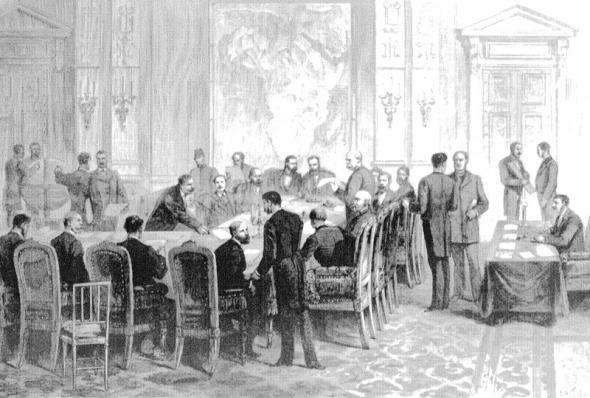Colonialism did not end in the Middle East!
After World War II, when almost all the European colonial world is “presaged” the demise of colonialism, on November 29, 1947 the General Assembly of the United Nations (UN) proposes, subject to the approval of Resolution 181, the division of the territory of Palestine following the plan proposed by the U.S. and the Soviet Union and which is applied by Britain, as ‘administrator’ of the territory officially recognized by the defunct League of Nations (SDN). The founding of Israel in 1948 meant, in practice, a new colonial partition, remembering a little sharing of Africa at the Berlin Conference in 1885. Thus, far from being characteristic of colonial continuities before former European colonies - or what the Peruvian Anibal Quijano (1992) dubbed coloniality of power and knowledge, we are witnessing an Israeli colonialism that, contrary to what is preached is not based on defense and state security before the neighbors and “enemies” in Arabic or enlargement of its territory, but the regional dominance of a natural resource more precious than oil and that can feed the emergence of new colonial regimes in XXI Century: Water.
 Conferência de Berlim La question du Congo, E. A. Tilly
Conferência de Berlim La question du Congo, E. A. Tilly
As the “Six Day War” in 1967, when control of the water was a fundamental purpose of Israel, with the recent claim to expand settlements in East Jerusalem, the present government of this state shows that, compared to previous Kadima government led by Ehud Olmert, his ambition to extend the control of water in Palestine remains unchanged despite already dominate about 85% of water resources in areas under the jurisdiction of the Palestinian Authority. Denoting complete indifference to international criticism, particularly the Arab-Muslim world, and with approval of their main ally - the United States of America (USA) led by Nobel Peace Prize Barack Obama - Israeli Prime Minister Benjamin Netanyahu leads this process of colonization under the guise of protecting ideological concept of ‘Greater Israel’ [which includes the biblical borders of Israel including the West Bank]. This current strongman Likud, both a realistic and ultra-liberal hawk, returns to power in February 2009 benefiting from ‘oblivion’ of radicalism and conservatism demonstrated that as prime minister between 1996 and 1999 after the assassination of Yitzhak Rabin - the only Jewish leader who hitherto dared to question the Israeli colonial policy in Palestine.
Against this background, the question inevitably arises: Quid Juris for colonial external interventions in XXI century?